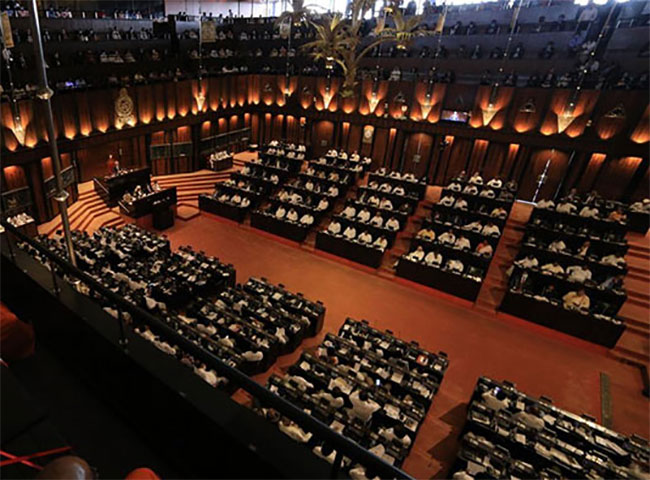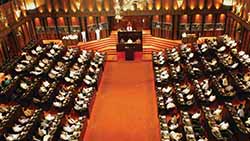Public Financial Management and Economic Transformation Bills passed in Parliament
July 25, 2024 05:56 pm
The Public Financial Management Bill and the Economic Transformation Bill have been passed in Parliament today (25) with amendments and without a vote.
Amendments were incorporated to the bills during the committee stage and subsequently, the third reading was passed without a vote.
These two bills were presented to Parliament on 22 May 2024.
The government says the two significant bills are aimed at bolstering the country’s economy.
The “Economic Transformation Bill” and the “Public Financial Management Bill,” are designed to enhance the management of public finances, thereby safeguarding against future economic downturns, the State Minister of Finance Shehan Semasinghe said recently.
Explaining the bills, he said the “Economic Transformation Law,” is aimed at preventing future economic collapses and that the legislation stems from the vision of President Ranil Wickremesinghe, rather than being proposed by the International Monetary Fund (IMF).
The recent stabilization of the economy following previous downturns underscores the importance of preserving this stability going forward, he said, adding that it is necessary to maintain optimal levels of public financial management to avert future economic crises.
The “Public Finance Management Bill” is set to be presented with a focus on enhancing accountability in managing public finances. This legislative initiative aligns with recommendations from a collaborative program with the IMF and holds significant importance for the country’s future financial management, the state minister said.
He said these drafts contain numerous technical intricacies aimed at bolstering confidence in the economy and maintaining the trajectory of the new economic direction implemented thus far.
Meanwhile, the Supreme Court recently determined that several clauses of the Economic Transformation Bill are inconsistent with the country’s Constitution.
Consequently, these clauses require a special majority in parliament and, in some cases, approval by a referendum to be passed. However, if the contentious clauses are amended, they can be passed with a simple majority, the court said in its determination.












